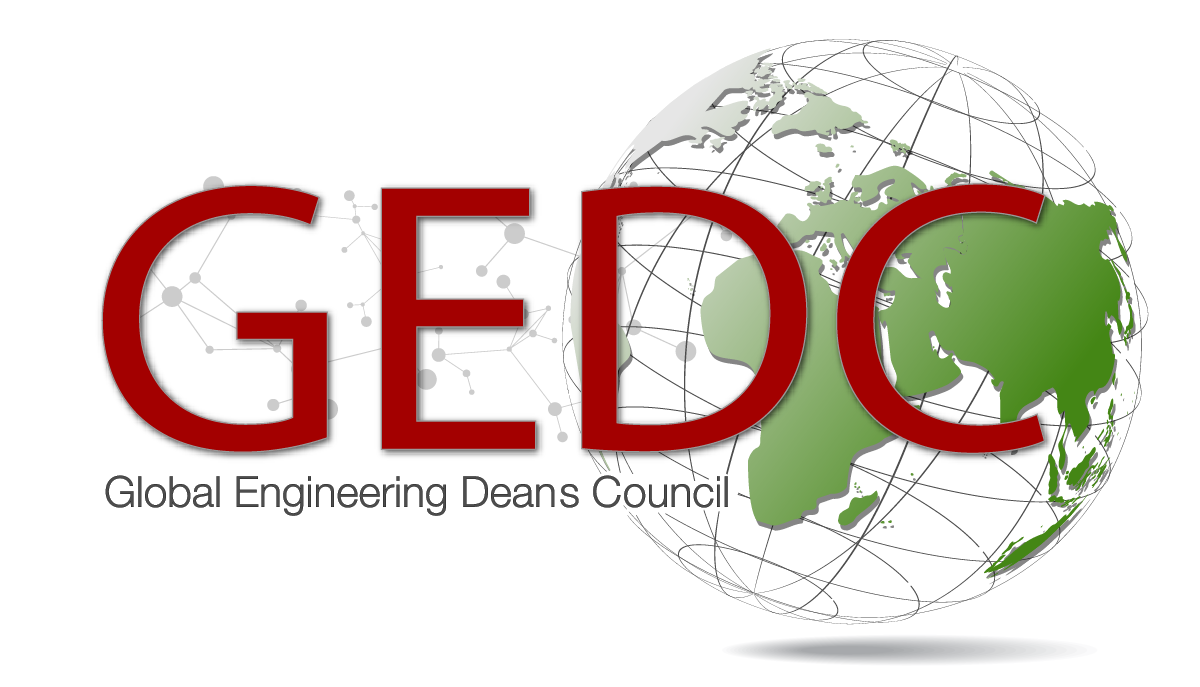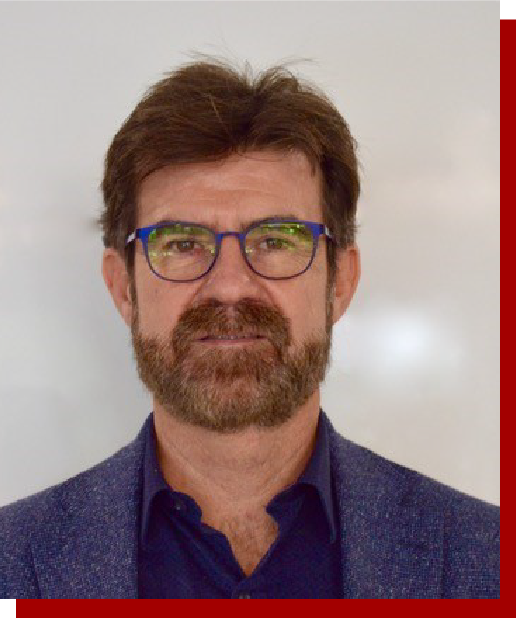Could you share some details about Tecnológico de Monterrey and your engineering programs?
Tecnológico de Monterrey is a private non-profit university from society and for society, with the purpose of transforming México and beyond through education and innovation. It was founded in 1943 by Mexican visionaries and entrepreneurs who saw in education the perfect leverage to develop our country. For more than 75 years, Tec de Monterrey’s educational journey has aimed for the transformation of lives, and more than 280,000 former alumni are the current legacy to the world. Proudly, they have created more than 2.8 million jobs worldwide, started more than 200,000 companies with a revenue of more than 200 billion USD, and started more than 30,000 non-profit organizations, most of which are still in operation today. Our vision is a summary of these outcomes to the world “to develop leaders with an entrepreneurial spirit, a humanistic perspective and a global vision”. Today, Tec de Monterrey is one of the most aspirational universities in Latin America, with more than 60,000 undergraduate and graduate students from all over the world operating in 26 campuses in 24 major cities in Mexico.
Almost 26,000 students attend the School of Engineering and Sciences. Eighteen undergraduate programs are the portfolio of professional careers. They include majors in sustainable systems, computing and information technologies, civil, chemical, mechanical and mechatronic engineering, as well as bioengineering, biomedical, food, and sciences. All majors are multidisciplinary containing courses from other schools such as business, design, ethics, entrepreneurship and more.
Graduate programs include four Scientific Master´s and PhD´s (Biotechnology, Nanotechnology, Engineering Sciences and Computer Sciences). Graduate programs also include Professional Masters offered in both digital and traditional formats.
What is one of your most promising or successful initiatives or programs that have been implemented while you have been dean?
At the present time, we are undertaking probably the most innovative and transformational education initiative in the history of our institution. Driven by a never-ending passion to serve and exceed the expectations of students and society at large, Tec de Monterrey is expanding Tec21 Educational Model to every single discipline and academic program. Tec 21 Model is our response to the quest of how education should be brought to the 21st century. This new educational model aims to develop both disciplinary and transversal (soft) competencies in our students in critical areas of human and professional aspects. Tec21 was conceived on 4 major pillars: a challenge-based learning; flexibility in how, when and where students learn; inspirational faculty and an engaging university experience. Challenge-based learning is perhaps the pillar that most differentiates Tec21 from traditional course-based educational models.
For many years, universities have tried to bring the world into the classroom. It is clear that the time has arrived to do the opposite, and take the classroom out to the world. With challenge-based learning, students are faced to real-world problems and actively, collaboratively and multi-disciplinarily demand students to imagine, design and implement solutions in many different and alternative places where real context problems affect our industries and society. These challenges are carefully identified and selected from faculty together with an external partner from industry, non-governmental organizations, public sector bodies or other specific communities. “Learn while you create” might be a summary of the engineering programs under the Tec 21 vision and a unique way to test the knowledge capital and the skills and abilities that current and future times will demand from professionals.
The design and testing of Tec21 model came with many different challenges. The new model relies on the integration of experiential learning, collaborative mentoring, multidisciplinary approach and the use of innovative technologies. Furthermore, it must reinforce a conscious awareness of human values and flourishment, and at the same time provide more opportunities to increase innovation and entrepreneurial outcomes. For engineering students, Tec 21 means a platform to “learn while you create” and the role of professors is not only to teach, but to also be guides and a mentors, and to work collaboratively among themselves to design and conduct student assignments and classwork. Student assessment and evaluation including knowledge, skills and competencies is another major challenge under constant review.
What are some “grand challenges” facing Mexico and how is Tecnológico de Monterrey prearing students to solve these challenges?
Mexico and Latin America are at a crucial time searching for the path to developing a knowledge-based economy. Like in many other parts of the world, universities play a major role in achieving this goal. Mexican industries are pushing forward to develop and incorporate exponential technologies to increase productivity and quality services so they can become a competitive player in the global arena.
The School of Engineering and Sciences has taken the task to be actively involved in creating research, innovation and entrepreneurship ecosystems in many of Mexico’s major cities. For example, in Monterrey, such an ecosystem―Distrito Tec (Tec District)―has been supported by four major initiatives from our school: Tec-Bio, Tec-Nano, Tec-Cyber and Tec Nexus. These disciplinary initiatives include four specific research centers (one in each initiative) and 18 special focus groups which act as task forces to imagine, design and conduct research that matters not only to the scientific community, but more importantly to our productive sectors. Much emphasis is also dedicated to aligning research and technology development to solve the many of the global challenges that society faces all over the world. During the last decade, major advances in biotechnology and bioprocess engineering, materials and sensor technologies, information technologies and advanced manufacturing, as well as the nexus water-energy-food have been a major part of the research capacities in our school and where we have concentrated our efforts and resources.
Although investment in research has been always critical and scarce, through the confirmation of an internal Tec research endowment, as well as a very intensive search to attract funding through strategic linkages and alliances with industry and individual donors, we have been able to design a low cost and highly efficient research and innovation platform. Our funding development office has centered their efforts to find external funding for talent attraction and infrastructure development. In turn, our school has created industrial consortiums and hubs both in Méxicoand China, as well as international distinguished professorships, endowed chairs and an extensive postdoctoral program which are crucial to world-class research productivity.
Also of importance is the strategic alliances and networking that we have developed in the last few years with top universities, scientific agencies and institutions all over the world. For example, we created an endowment for human resources development with MIT five years ago. Other institutions include universities in the USA, Singapore, China, Spain and Germany.
Parallel to these research efforts, our school has very recently launched a program called “Reactor of Innovation”. This program enables the identification, selection and acceleration of research projects to increase the count of tech-based new business, patent licensing and research coalitions with many corporations and organizations.
How does Tecnológico de Monterrey engage and collaborate with industry? How do you prepare your students for industry?
We have been involved very closely with industry in academics, research and consulting, since the foundation of Tec de Monterrey. Recently the Tec21 model has boosted industry alliances, agreements and coalitions in an unprecedented high scale level. Four years ago we started a pilot of Tec21 with the creation of the i-week program. This is a full week where students suspend traditional course sessions to actively engage in a solution of a particular real life challenge provided by a corporation or industrial group. Mentors from both the company and Tec advise and guide the students to identify, design, test, prototype or implement a solution for the given challenge. In 2018, almost 200 corporations including national and international based companies participated in this program. Soon after i-week was implemented, i-semester was born with the same experiential, collaborative, multidisciplinary and innovative principles and with full accreditation to a regular semester. This year we are expanding this model to the complete full undergraduate portfolio of programs which will be based around challenges rather than lecture based courses.
For our School of Engineering and Sciences, this engagement with industry is of particular relevance not only because the education innovation that it represents, but also because it is an unmatchable way to stay in close contact with industry, its needs and requirements, and also to explore innovative research opportunities.
In your opinion, what are some significant issues that should be addressed by the engineering education community—particularly, engineering deans?
The world is in constant change and every aspect of our lives are being tested and challenged by new standards, policies, rules, habits and demands from society. Engineering schools must adapt to these dynamic, uncertain and volatile times and re-create the foundations of pertinent education. New models are necessary to engage a new generation of students in their education and the perception they have on its value. This is the time in which a diploma becomes relevant only when the “what” and “how” of education are clearly differentiated. Traditional education models at traditional universities must be reviewed constantly.
Other options of training and competence development are booming and moving ahead in the race to attract students because of these models are more flexible and less costly. There is also the perception among many employers who complain about the low-value set of skills of graduates in the marketplace.
There is no universal recipe for all contexts and situations to be a rapidly transformative school. However, there appears that efforts to create new models of student engagement through a more applicable, experiential, collaborative, integrative, and multidisciplinary formation, makes the students more accountable for their own aspirations and demands and easier to connect and develop alliances, coalitions and networks with industry and other external organizations. Encouragement to constantly re-think, and if the case, re-design standard education models are in order for engineering deans all over the world.

